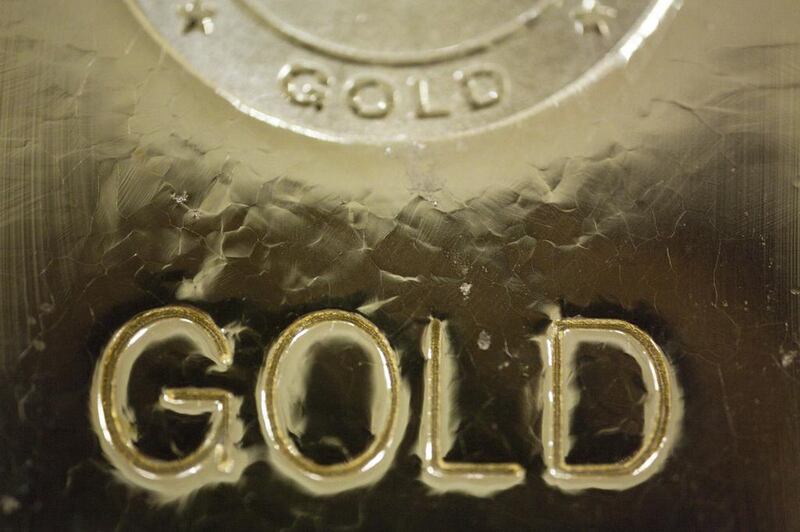There is a sense of deja vu as we enter the New Year in the precious metals market.
Last year proved to be gold’s best year since 2010 with a 12.5 per cent gain in price, while its nemesis the US dollar had its worst year since 2003 and lost 9.8 per cent against a basket of global currencies.
So if 2017 was like 2010, will there be a follow through with a really epic year for precious metals in 2018 like 2011? That was the year gold hit an all-time high of $1,923 and silver fell a dollar short of its $50 all-time high of 1980.
Yet amazingly the strong performance of gold in 2017 occurred during a period when many investors became bored with the metal.
Even in the unexpected rally between Christmas and New Year the popular trader’s website Wall Street Window told me it received just three emails after publishing its gold stock tips, and only mine had anything positive to say.
A former Dubai journalist colleague now working in Toronto, one of the biggest markets for gold equities, dismissed my last positive article in The National saying that nobody he talked to there could get the least bit excited about gold for 2018.
Of course this is what you would expect. Gold prices have been chip-chopping sideways since 2011, albeit the charts show a clear turn upwards from early 2016 onwards and a clear breakout in 2017.
But when everybody is a bear and loaded onto the opposite side of a trade that is usually the best moment to go long, especially if you can see a catalyst or two to keep the upward momentum going, and preferably accelerating.
______
Read more from Peter Cooper:
12 festive tips on how to invest in 2018
Could gold do a bitcoin and hit $10,000 an ounce in 2018?
What to buy when the stock market crashes
______
I’ve taken this contrarian approach in many different asset classes over the years, and while being patient can at times be almost as painful as a bad back, it pays dividends more often than it ends in disappointment.
So, why be optimistic about the outlook for precious metals?
First up I suppose the crash in bitcoin and the other 1,200 so-called cryptocurrencies is one reason to buy precious metals, if only because the buying mania of the past few months definitely depressed the gold price, which got as high as $1,350 last summer in comparison to its 2017 closing price of $1,305.
Conversely, as bitcoin bit the dust between Christmas and the New Year gold prices suddenly sprinted up $50 at a time of year when not much usually happens to prices.
Last month, I opined that gold could 'do a bitcoin' in 2018 and also suddenly take off into a massive price spike.
In the past, such investment mania sell-offs of speculative ‘assets’ always led to a switch into precious metals.
If you look at the multi-year price chart for gold, then it is nicely positioned for a bitcoin-style final price spike to finish this super bull market than the early 2000s when gold was around $300 an ounce.
But under what sort of conditions would the general public and investment community flock to buy gold?
The last time this happened was in 1979 to1980, after a decade of steadily rising gold prices, apart from the nasty 50 per cent correction in 1975 to 1976, not unlike the 2011 to 2015 pull back.
Then it was a combination of runaway US retail price inflation at 18 per cent, and the American hostage crisis in Tehran after the Iranian Revolution, that catapulted gold prices up 400 per cent in a year. The US dollar was also in a complete mess.
Remember that last year was the dollar’s worst year since 2003. It came off a 14-year high and so could well have a lot of downside to come as Donald Trump’s tax plans pile up US debts. Gold and the US dollar generally move in opposite directions.
Inflation is low, though we do have asset price hyperinflation with the Dow Jones Index up 25 per cent last year. Is this an achilles heel?
However, if history is any guide then gold won’t really power ahead in 2018 absent a major geopolitical event. That said there is no shortage of potential catastrophes out there.
President Donald Trump is far more aggressive in his rhetoric than his predecessor and North Korea is a potential flash point. You also do not have to be very creative to think of unexpected crises that could emerge in the Middle East.
There are even serious commentators who think moves to back the dollar or yuan with gold this year could send gold to $10,000 an ounce, as this column discussed last month.
But most probably the thing to watch for is the obvious oversized gorilla sat in your living room: stock, bond and real estate market valuations are very stretched by ultra-low interest rates that are now on the verge of moving up.
I say ‘on the verge of moving up’ because the Federal Reserve’s recent interest rate hikes have not been reflected in 10-year US Treasury yields. When, and not if, that happens watch out for serious corrections in all three major asset classes.
Now where does the smart money go as a safe haven in such crises? Precious metals can get sold off with everything else as they were in 2008, but they always rebound fastest and show the quickest growth thereafter.
Indeed, precious metals are often sold as an insurance policy against a rainy day in other major asset markets.
Perhaps that is the real reason to be optimistic about higher gold and silver prices this year; after such a strong performance in 2017, safe haven insurance will be in demand.
Peter Cooper has been writing about finance in the Gulf for more than 20 years






